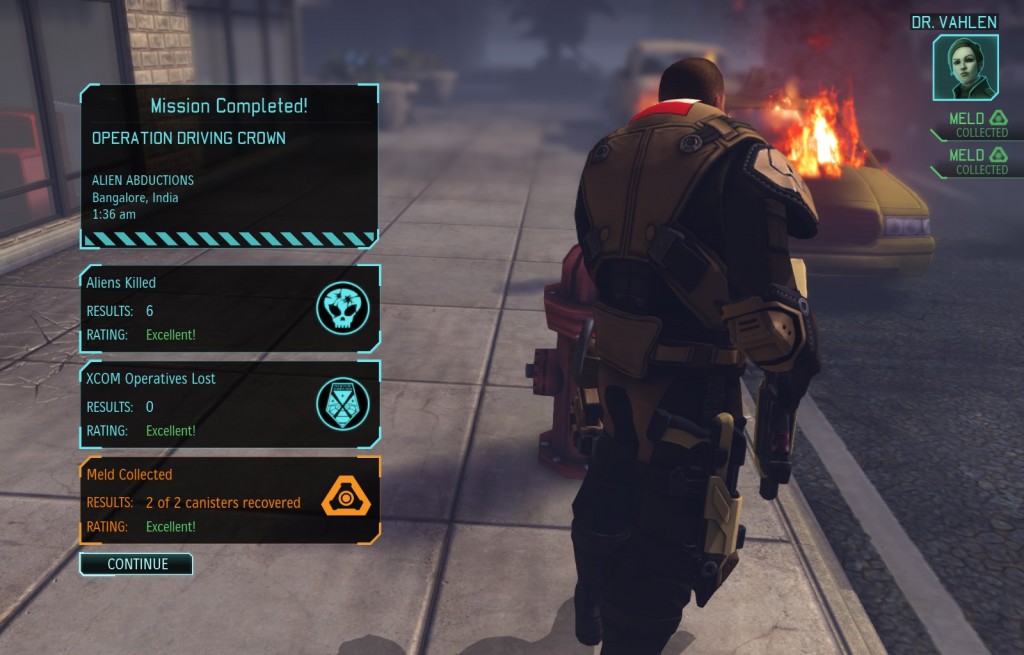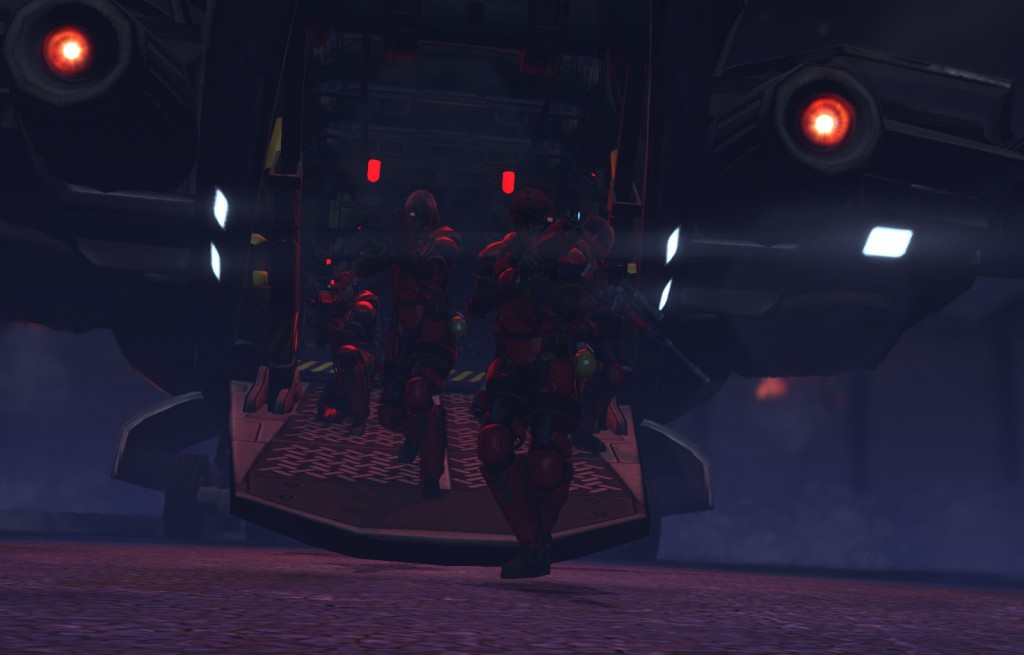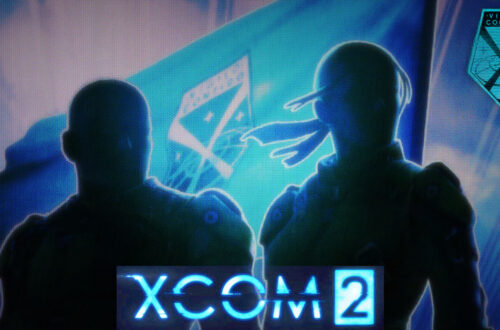Marathon
 Marathon
Marathon
Marathon mode is the real deal. It displays a contempt at your enjoyment and a brutal dismissal of everything resembling kindess the game has to offer in such a a stunning way that I don’t think I’m every going to consider playing the game in any other mode. While I think the Long War Mode might take the game a little too far, this option really hits it on the head. It is, in a single word, all that XCOM and its series represents – Unforgiving.
And I’m enjoying every moment of it.
Of course, spoilers beyond, though I assume you know that, as I walk through the options I choose for my Marathon Game
As I mentioned last week, I’ve started a Marathon game with a ton of second wave options enabled, going for the longest, most brutal war against the Aliens that I can manage, and the game is delivering on all its promises in ways I could have never imagined. I’ve started probably a dozen Marathon Mode games, and each one of them has taught me brutal lessons about how the game has changed with all the options I’ve enabled. I’ve had to change my battlescape strategy, my research and foundry strategy, and even the overall Tactical approach to the game. Relearning the game in this fashion has really challenged my ability to adapt.
Drs. Valen and Shen
One of the first things I had to relearn was my research strategy, due to the ponderously slow time to accomplish any given research project. Researching weapons and armor is tempting, but with the low capacity of your scientists at the start of the game, and the exorbitant completion times, I have found that getting the foundry up and running is the key to getting a good start to the game. As long as I am always progressing towards that goal, I’m confident.
Accordingly, I set the research at the start of the game, if at all possible, to weapon fragments, in order to unlock Experimental Warfare, and then the Foundry. Additionally, you can choose to go the alien materials route with the same results. alien materials unlocks nanofiber vests, with weapon fragments unlocking the scope. The key for me, is that the sniper or heavy your bound to have wandering around in the backfield is much more likely to get use out of that scope than your assault or support that would use the nanofiber vests. At the start of the game, your rookie and squaddies HP are so low that they are going to be reduced to ash no matter their armor level, so I take the scope, every time.
The scope will also make more sense when I talk a little later about the Battlescape, but it is just a collateral upgrade on the way to opening the Foundry. That facility is key primarily for the tactical rigging upgrade. This allows soldiers to carry two items, and is worth the investment in the foundry all on its own. It is critical, however, in Marathon because you are forced to rely on both ballistic weaponry and inaccurate rookies for an greatly extended period of time. Tactical rigging grants them both a boost to both turn by turn damage with Reaper Rounds and a one time static damage effect with Grenades at the same time.

Boots on the Ground
One of the things I had to relearn the hard way was how i actually used the troops on the battlescape when fighting aliens. The early game was especially trying as my soldiers abysmal accuracy was proving problematic in eliminating aliens with even a small semblance of cover. After my first two or three failed games, I came to realize that I had to adopt a strategy that I had not had since I had played Xcom: UFO defense: Scorched earth.
This revelation is two fold. The first is that the rookies and early squadies are extremely inaccurate, and need help finishing off enemies. The second stems from the way marathon mode works. While nearly everything takes triple or double or even longer to complete, the aliens do not stop coming. abductions, spacecraft, and landings are as prodigious as they were in a standard game. This allowed me to be less worried about the weapon fragments and artifacts that my soldiers might bring home, because there will almost always be another ship.
Another things that was pressed upon me as I played the game was the need to stick close together when playing in the battlescape, which is fairly contrary to how I played the game before. even during Classic and Ironman play through, I’d felt confident that I would be able to let an alien live long enough to shoot and potentially injure one of my soldiers, and that I would still live. That was not the case in marathon. With the slow wound recovery rate, I would always be waiting for my soldiers to come back from the brink. Playing extremely close, at least while there are no enemies with grenades around, allows me to focus fire down a single target or group of targets. Previously, I’d just hunker down and try to live, but the aliens are accurate enough I don’t want to even be considered in their radar.
Tight groups of soldiers with grenades has saved the entire squad from more than one complete wipe, but allowing a soldier who’s grenades to get into position to throw them at a cluster of enemies, where as before I might not even be close enough for a grenade toss with anyone.
Tactician
The missions you choose for both the council and alien aubductions mean very different things in marathon, both because the game takes longer, which can change your priorities, but also because I’ve chosen to randomize the rewards. With this combination, it has been difficult not to see country after country leave as I sell everything XCOM owns in order to fund satellites and new facilities. Marathon gives you an appreciation of both scientists and engineers, as even the smallest of discounts on research and foundry projects allows XCOM to move on to another project sooner.
Finally, once again due to abductions being just as plentiful as they were without the option, XCOM has a lot more funding. Selling corpses, Ellerium, alloy and weapons is practically the only way to raise enough money to keep xcom going from week to week.
its an extremely precarious balancing act, But one I find engrossing none the less.
